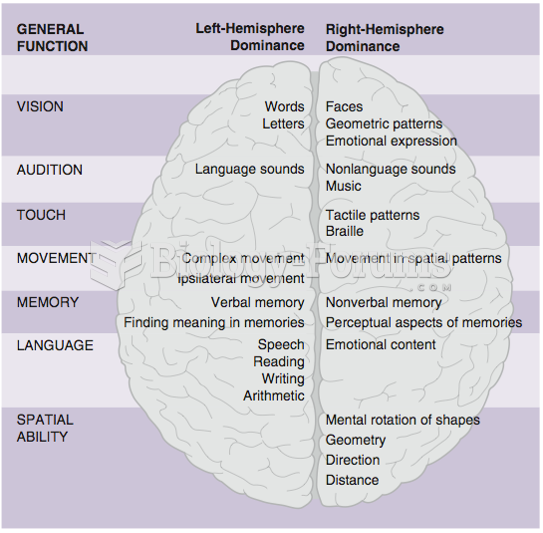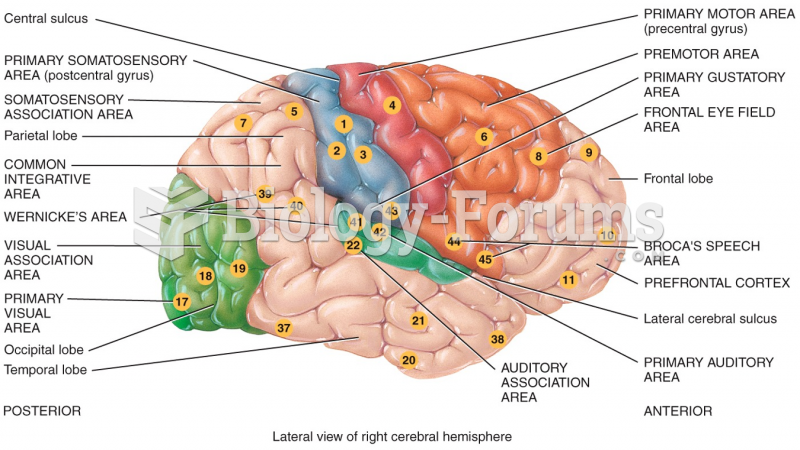|
|
|
Most childhood vaccines are 90–99% effective in preventing disease. Side effects are rarely serious.
Though newer “smart” infusion pumps are increasingly becoming more sophisticated, they cannot prevent all programming and administration errors. Health care professionals that use smart infusion pumps must still practice the rights of medication administration and have other professionals double-check all high-risk infusions.
Excessive alcohol use costs the country approximately $235 billion every year.
More than 30% of American adults, and about 12% of children utilize health care approaches that were developed outside of conventional medicine.
The use of salicylates dates back 2,500 years to Hippocrates's recommendation of willow bark (from which a salicylate is derived) as an aid to the pains of childbirth. However, overdosage of salicylates can harm body fluids, electrolytes, the CNS, the GI tract, the ears, the lungs, the blood, the liver, and the kidneys and cause coma or death.







